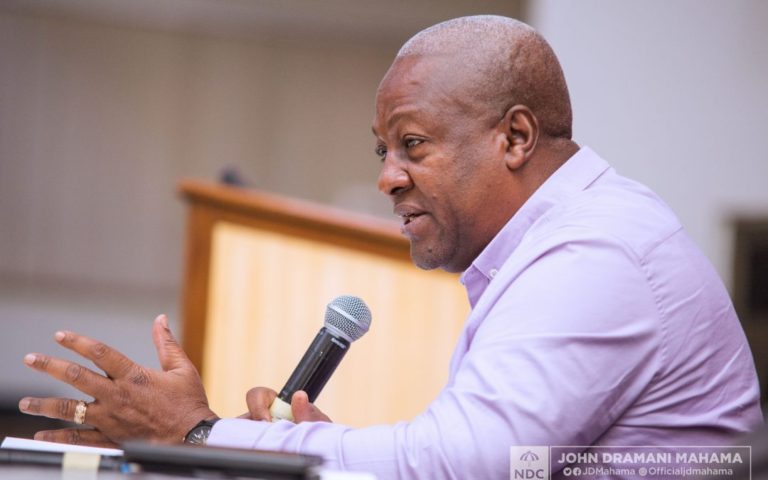
Open letter to President-Elect John Dramani Mahama by Hubert Baidoo
I write to you as a concerned citizen, an analyst, and someone with a background in the sciences, to draw your attention to the monumental impact of inflation and currency depreciation on the future of this nation. It is with great humility that I bring forth an analysis that demonstrates the destructive nature of these economic forces.
As you may know, black hole is a region of space where gravity is so powerful that nothing, not even light can escape its pull. At its core lies the event horizon, a boundary beyond which any matter or energy is irretrievably sucked into the abyss. The black hole grows ever larger by consuming anything in its vicinity, leaving devastation in its wake.
Your Excellency, inflation is Ghana’s economic black hole.
In my analysis, I present three charts that illustrate the devastating consequences of inflation and currency depreciation on investment capital over the years. The first chart shows a hypothetical $50,000 investment in Fanmilk Ghana yielding extraordinary nominal returns of $29 million between 1991 and 2023, outperforming even the third-largest company in the world and the largest index fund. However, in the second chart, when we adjust for inflation, this return plummets to less than $100,000 in today’s value. And in the final chart, after factoring in currency depreciation, that investment tragically slips into negative territory.
This is what I call Capital Denudation, a catastrophic erosion of wealth caused by inflation and currency instability. The allure of nominal gains is obliterated when these forces are accounted for. In essence, inflation acts as an economic black hole, dragging the value of money and investment into an inescapable vortex. No matter how much effort is exerted, capital cannot escape unscathed if inflation is left unchecked.
Inflation operates with a silent but debilitating force. It erodes purchasing power, depletes savings, and undermines the foundations of economic growth. Even the most robust investments, no matter how promising they appear, are rendered futile under the gravitational pull of sustained inflation. And just like the event horizon of a black hole, once a country’s economy crosses the threshold of hyperinflation and severe currency depreciation, recovery becomes almost impossible without radical, immediate intervention.
Sir, history shows us that countries that have conquered inflation and stabilized their currencies have enjoyed unprecedented economic growth. Take Germany after hyperinflation in the 1920s or Brazil in the 1990s. Their leaders made bold decisions to stop the economic bleeding, which subsequently transformed their nations. Similarly, if your presidency prioritizes defeating inflation and stabilizing the cedi, Ghana’s economic future will be secured.
This is not just about preventing capital denudation or saving investments. It is about restoring the confidence of the Ghanaian people, who will once again believe in the value of their savings and the future of their nation. It is about creating an environment where investors, both local and foreign, can confidently allocate capital without fearing the loss of its value.
Taming inflation and stabilizing the currency will require bold, systemic reforms. Fiscal prudence is an essential starting point. Mr. President-Elect, I must emphasize that I have a trilogy on fiscal prudence alone, but I will keep this brief. In short, it is about cutting wasteful expenditures, reducing government overspending, and ensuring that every pesewa allocated serves a tangible purpose. Fiscal discipline builds the foundation of economic stability, and without it, every other policy will falter.
On infrastructure, I know you love building, and for good reason, good infrastructure powers a thriving nation. However, the way we approach infrastructure must be redefined to avoid inflationary pressures. Mr. President-Elect, invite real businessmen and private enterprises to undertake large-scale, nationally impactful projects. Let them raise private capital and provide government-backed repatriation guarantees to secure their investments. This is a bold departure from traditional government contracts, but it will remove the burden of debt from the nation and incentivize private sector excellence. This will also ensure transparency and eliminate the inefficiencies associated with government-led construction projects.
Finally, let us consider another scientific metaphor; the Second Law of Thermodynamics, which states that the entropy (freedom) of an isolated system cannot decrease. Entropy represents the natural order of increasing freedom and efficiency in systems, and it is your role to create an economic environment where businesses operate with minimal bureaucracy, transparency, and fairness. This freedom, much like entropy, will fuel innovation, competition, and sustainable growth, and will allow Ghana’s economy to find its natural, most efficient state. Stifling this freedom, however, with excessive regulation, corruption, or inefficiency, would risk plunging the nation back into deeper economic woes.
Sir, the opportunity before you is immense. If you concentrate on casting out this “real economic demon,” you will be remembered as a transformational figure in Ghana’s history, one who steered the country away from the event horizon and into a new era of stability, growth, and prosperity. The world will look upon your presidency as the turning point in Ghana’s journey toward economic sovereignty.
I must apologize if my metaphors have been too vivid. But much like the scientists who study black holes to understand their mysteries, I have used this analogy to clarify the urgent, often invisible threat inflation poses to our economy. It is my hope that this perspective inspires action.
The future of Ghana is bright, Mr. President-Elect, but only if we address the gravitational forces holding us back. Together, we can secure a legacy of hope and resilience for generations to come.
Yours sincerely,
Hubert Baidoo
Proud Ghanaian
